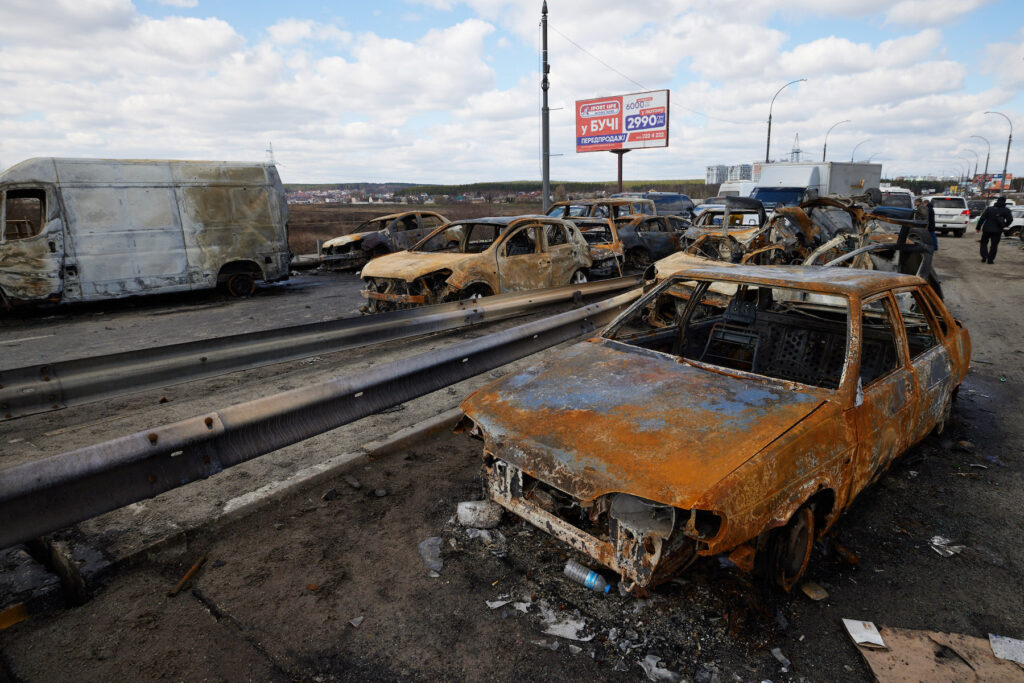Diane’s farewell message
After 52 years at WAMU, Diane Rehm says goodbye.

A line of destroyed cars sit abandoned in Bucha, Ukraine, where hundreds of bodies of civilians have already been recovered, with many more feared dead.
Evidence continues to mount of alleged atrocities perpetrated by the Russian army in Ukraine. Both world leaders and the International Criminal Court have dubbed these “war crimes.” And in an address to the United Nations this week, Ukrainian President Volodomyr Zelensky went further and accused Russia of committing genocide.
So, what does it actually mean to break the laws of war? How do you prove it? And what does accountability look like?
To help answer these questions, Diane spoke with Stephen Rapp. He was the U.S. Ambassador-at-large for War Crimes Issues from 2009 to 2015 and prosecuted war crimes and crimes against humanity in the aftermath of the genocide in Rwanda and the civil war in Sierra Leone.
Rapp says there is no doubt Russia has committed war crimes over the course of its invasion of Ukraine and adds that failing to hold perpetrators accountable would send a very dangerous message to world leaders and their militaries.
After 52 years at WAMU, Diane Rehm says goodbye.
Diane takes the mic one last time at WAMU. She talks to Susan Page of USA Today about Trump’s first hundred days – and what they say about the next hundred.
Maryland Congressman Jamie Raskin was first elected to the House in 2016, just as Donald Trump ascended to the presidency for the first time. Since then, few Democrats have worked as…
Can the courts act as a check on the Trump administration’s power? CNN chief Supreme Court analyst Joan Biskupic on how the clash over deportations is testing the judiciary.